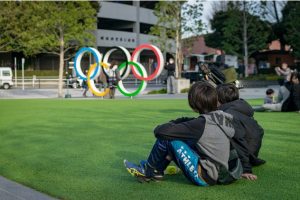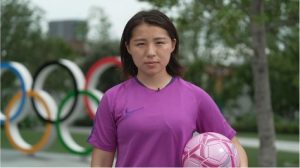By: Melissa N. Berouty
Journal of Global Rights and Organizations, Managing Editor of the News
TOKYO, Japan – A glimpse at the dictionary will tell you that a coach is “a person who teaches and trains an athlete or performer.” Yet, any athlete knows that the role of a coach stretches far beyond this simple definition. A coach can serve as a mentor, motivator, or even a catalyst for a young athlete to fall in love with their respective sport. Thus, a coach possesses a great deal of responsibility, power, and influence. However, for decades in Japan, coaches have prioritized Olympic medals and Championships over the safety and well-being of their child athletes, subjecting them to brutal physical and verbal beatings.

While one might commonly hear tough coaches make tougher players, Japanese coaches utilize a training tactic that far exceeds tough coaching, referred to as taibatsu, or corporal punishment. Japanese child athletes report being “punched in the face, kicked, beaten with objects like bats or bamboo kendo sticks, being deprived of water, choked, whipped with whistles or racquets, and being sexually abused and harassed.” According to Human Rights Watch, in 2020, 425 current and former child athletes reported physical abuse at the hand of their coaches or trainers.
Recently, Japan amended the Child Welfare Act of 1947 to prohibit corporal punishment. While this prohibition does extend to athletics, the protection it offers child athletes is inadequate and irregularly enforced. Similarly, the 2013 Declaration on the Elimination of Violence in Sports and the 2019 government codes put forth by various leading sports organizations fails to specifically address child athlete abuse. Without clear legal implications for a failure to abide, these reforms carry little to no weight in ensuring the safety and welfare of child athletes.

Under international law, governments are obligated to protect children’s right to not only participate in athletics but to participate in a safe environment, free of both abuse and violence. This right is detailed in the Convention on the Rights of the Child, which Japan is a party to. With this, it is imperative for leading Japanese sports organizations, such as the Japan Sports Agency, the Japan Sport Association, and the Japanese Olympic Committee, to create clear and comprehensive reporting, investigation, and sanction protocols for child athlete abuse. Without the correction of these institutional failures, child athletes will remain vulnerable.
The Olympics are marketed as an idealistic and extraordinary meeting of the world’s most prominent and gifted athletes. To preserve this façade, numerous nations, from Japan to the United States, prioritize the quest for medals over athletes’ basic human rights. Meanwhile, these athletes, child and adult alike, still represent their countries with pride and dignity. But, at what cost?
In a matter of months, we will all sit down in front of our televisions to watch the Olympic and Paralympic Games in Tokyo. Here, the Japanese government has a unique opportunity to set the record straight and “serve as a model for how other countries should end child abuse in sports.” Japan should take the lead in demonstrating that child athletes’ health and well-being do not just simply matter, but that they are the priority.
Participation in athletics should be a root of joy, empowerment, and growth, not fear, abuse, and manipulation. While winning may be the ultimate goal, one day, these child athletes will move on from competition and the global spotlight. As you view the Olympics and Paralympics this summer, keep in mind that behind every uniform is a human being. A human being that should be offered all fundamental human rights both in and out of athletic competition. The abuse of child athletes is not exclusive to Japan and remains a pressing issue worldwide.
For further information, please see:
End Violence – Japan Prohibits all corporal punishment of children – 28 Feb. 2020
Human Rights Watch – Pressure Builds on Japan to Protect Child Athletes – 28 Jan. 2021
Merriam Webster Dictionary – Coach – 2 Apr. 2021